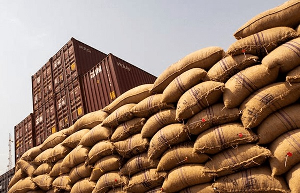Twenty-eight prisons in the country are overcrowded by as much as 358%, jeopardising the lives of inmates.
Overcrowding is a major contributing factor to the spread of communicable diseases among inmates.
Currently, 14,416 people are locked up in the various prisons nationwide. They are made up of 14,192 males and 224 females.
Out of the 43 prison establishments, 28 are overpopulated ranging between 8% and 167%.
Of the overpopulated prison establishments, three are female prisons: Akuse Female Prison - 33%; Kumasi Female Prison - 37%; and Tamale Female Prison - 167%.
The remaining 15 are under-populated and range between 27% and 81%.
Four others are under-populated: Nsawam Female Prison - 51%; Sekondi Female Prison - 33%; Ho Female Prison - 28%; and Sunyani Female Prison - 67%.
The classification and control of prisoners have become a daunting task for prison managers.
The Ghana Prisons Service explained to The Finder that the situation is pronounced at the central stations or walled prisons because they receive both convicts and remands directly from the courts.
Aside the walled prisons, there are local and camp prisons which receive inmates from the central stations.
According to the service, by virtue of the nature of offence and length of sentence, certain categories of prisoners cannot be sent to the local stations, hence overpopulation in the central stations.
The principle that prisoners live in dignity is constantly violated as a result of overcrowding. With lack of sleeping space, poor ventilation, poor sanitary conditions and inadequate feeding, prisons have become hellish for prisoners.
Prison environment is generally stressful. Some inmates have developed mental illness as a result. Inmates are unable to exercise their bodies and minds due to the lack of space and recreational facilities. This has resulted in health challenges for some of the inmates.
Ghana is a signatory to most UN treaties and conventions on the treatment of the incarcerated. Apart from deprivation of liberty, which is incidental to imprisonment, prisoners retain most of their basic rights.
General News of Wednesday, 22 January 2014
Source: The Finder













